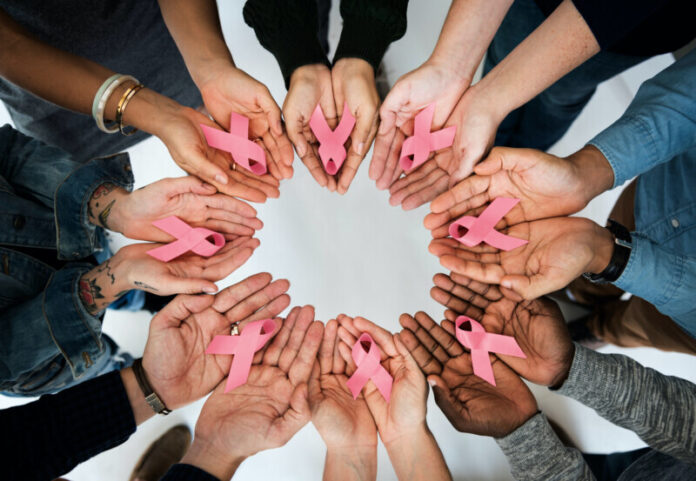For more than 40 years, October has been recognized as National Breast Cancer Awareness Month to educate the public on the importance of early detection healthcare and elevate our awareness of the effect of breast cancer on our lives.
Breast cancer is one of the most prolific types of cancer, with approximately 300,000 cases of women and men expected to be diagnosed in 2023. One in eight women in the US will be diagnosed with breast cancer in her lifetime, approximately one person every 2 minutes. With how common this cancer is becoming, breast cancer is likely to touch your life in some way.
This October, we invite you to learn more about the early signs of breast cancer and essential screening and detection healthcare routines.
Early Detection Saves Lives
Committing to your breast health and maintaining good practices for screening are essential components of early detection. Regular mammograms, self-check breast exams, and routine exams with your doctor are our best tools for finding cancer early. These routines only help with early detection if we practice them regularly!
Women at average risk for breast cancer should have clinical breast exams at least every three years after age 20 and, after age 40, should have annual clinical exams and mammograms. For women with a higher risk for breast cancer, you may need to schedule these examinations starting at a younger age and with greater frequency.
Know Your Normal!
Become familiar with your breasts: your normal shape, size, tissue texture, and skin color. The following changes can be early warning signs of breast cancer:
- Change in the look of your breast, including swelling, redness, or darkening of the skin.
- Changes in skin texture, including dimpling or puckering
- Changes in your nipple, such as discharge, rash, or pulling in of the nipple tissue
- Change in the size or shape of your breast
- A lump or area of dense tissue developing in your breast or under your arm
- Any persistent pain in one spot that does not go away
If something looks or feels different than usual in your breasts, it would be a good idea to seek medical attention from your doctor.
For breast cancer survivors, pay particular attention to persistent aches, unexplained pains, or a cough, as they can be warning signs of returning cancer. Keep your doctor informed about any persevering discomfort.
Breast Cancer is Pervasive
The best chance for successful treatment of breast cancer is early detection and making healthy lifestyle choices. Better technology and increased awareness of essential healthcare practices have led to higher rates of survival over the last few decades, but breast cancer is still one of the most common cancers in the US.
This October, join the fight against breast cancer and help spread awareness about essential detection healthcare. There are wonderful local resources and events to take part in to support our community during National Breast Cancer Awareness Month. Here are a few to check out:
Saturday, October 7 ~ Susan G. Komen More Than Pink Walk at Cool Springs Galleria to celebrate the power of community with a walk around the mall: joining together in hope, in strength, and in remembrance of those we have lost.
Saturday, October 7 ~ Booby Bolt 5k and Kids’ 1 Mile Run benefitting Pink Out For Hope, Inc., a nonprofit located in Cheatham County dedicated to helping breast cancer patients financially while they are undergoing treatment.
Saturday, October 21 ~ Making Strides With Nashville and the American Cancer Society is a celebration of hope, bringing people together to end breast cancer.
The Tennessee Breast Cancer Coalition is an organization dedicated to advocating and providing for Tennesseans facing breast cancer through individual assistance, education, and legislative action.
Pretty in Pink Boutique
Pretty in Pink Boutique is committed to supporting those with breast cancer and their loved ones throughout the entire journey. We are committed to your well-being the whole way through and may be able to assist or provide resources to help you.
Please contact us via phone or email us to let us know how we can help — call (615) 777-7465.
Subscribe to our FREE Newsletter


















